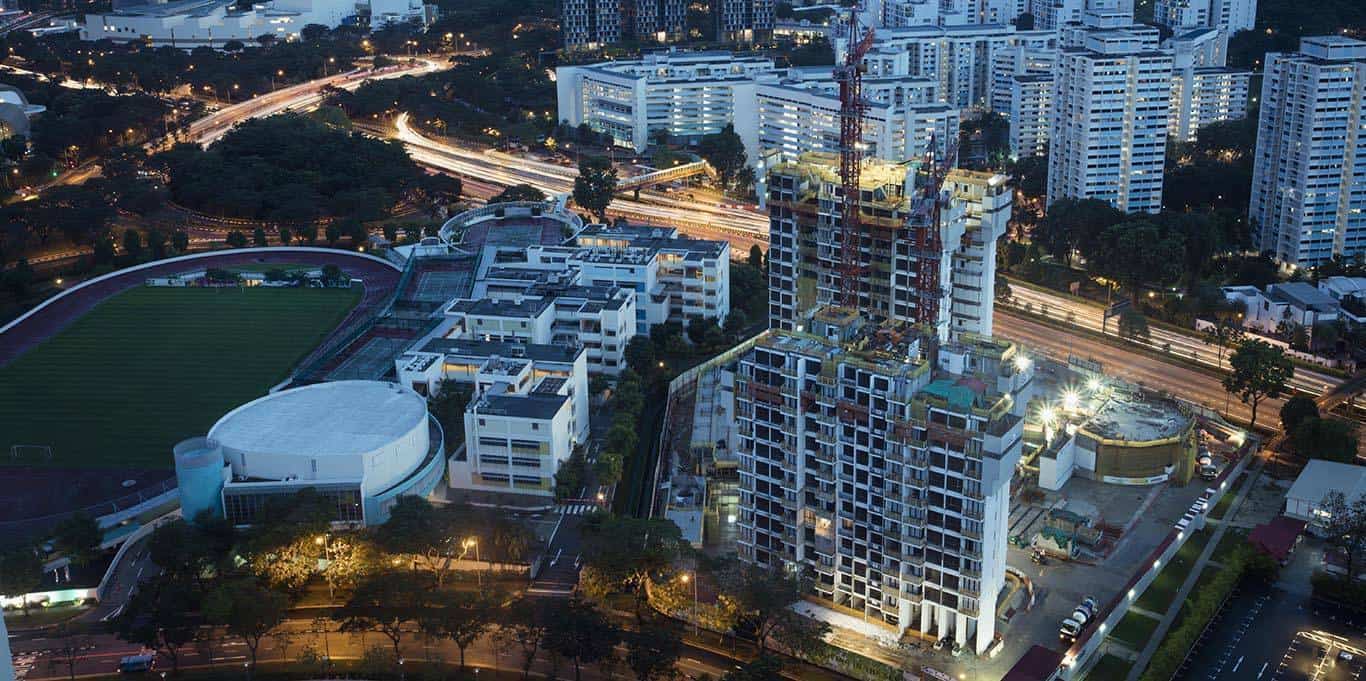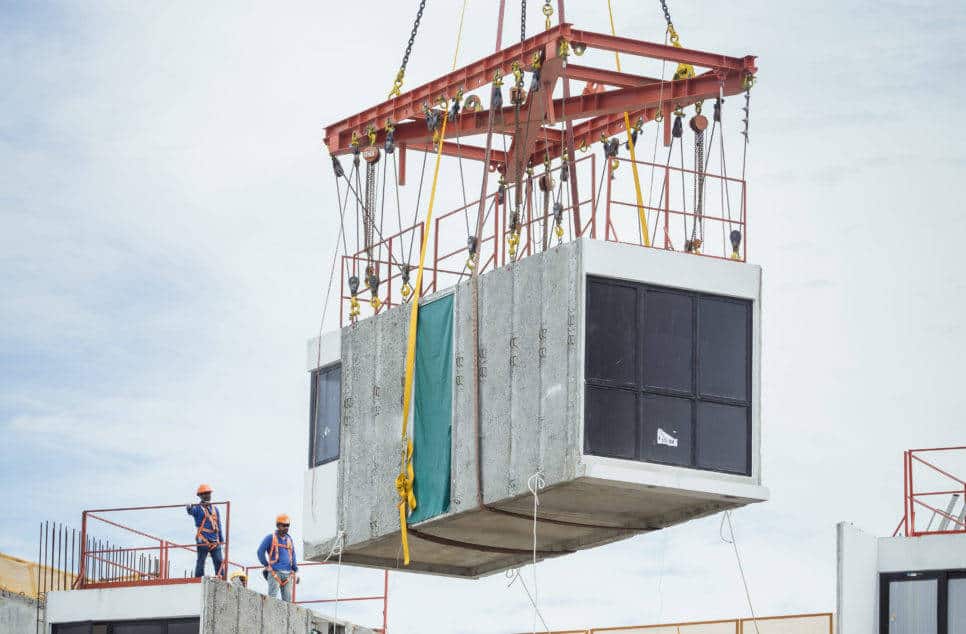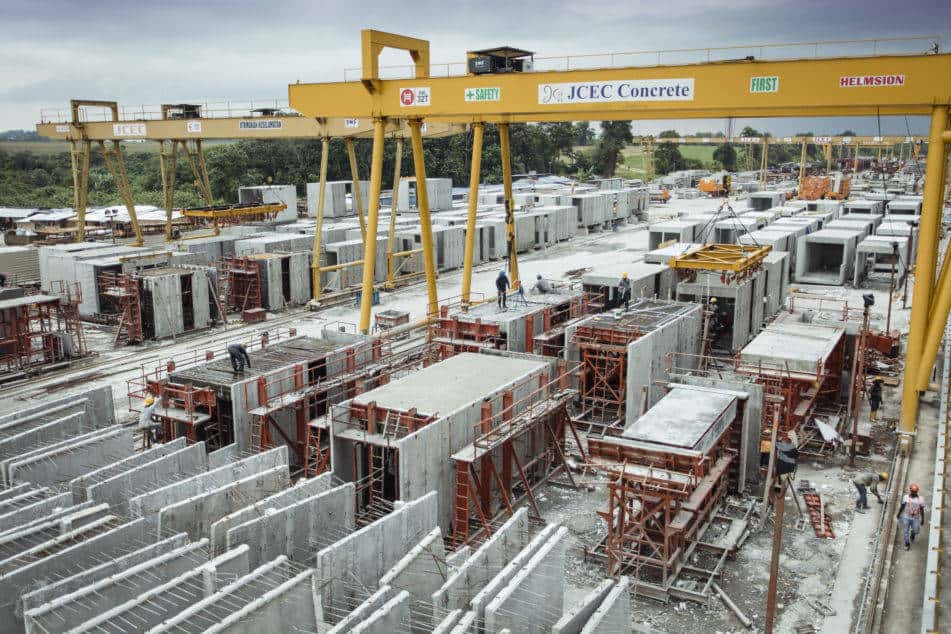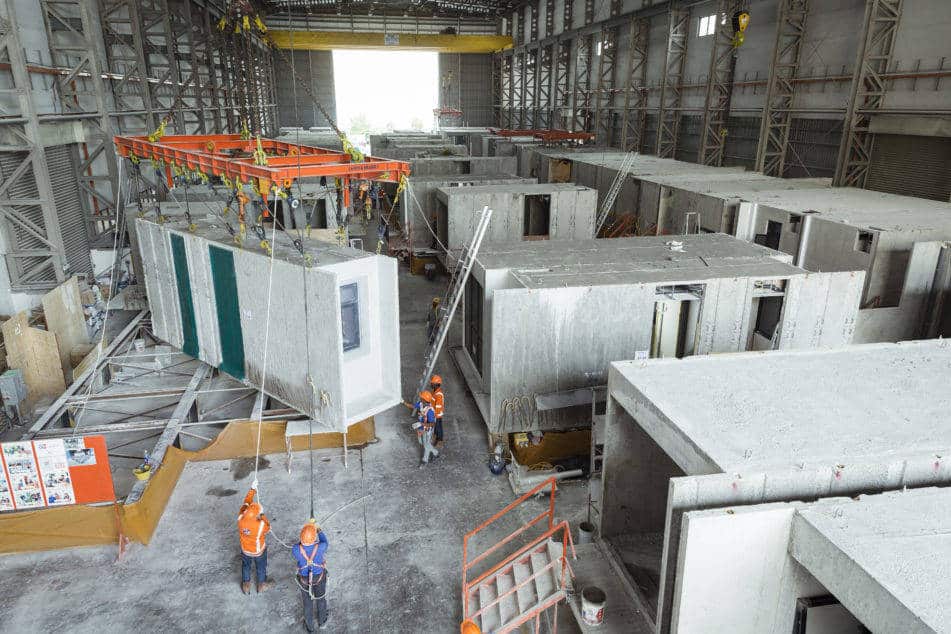
Singapore: testing ground for modular construction

What is our approach to modular construction?
Aurélie Cléraux (AC) / As a global player in property development and construction, we offers our customers an all-inclusive approach, from the technical feasibility studies to the handover of the project. This includes handling all aspects of production: module fabrication, transport, logistics, installation, and coordination of all trades on site. We target « 3 H » projects : High-rise (more than 7 floors), High-value (concentration of added-value per square foot) or High-volume (a large number of modules).

A prefabricated module is eased into place on the 17th floor of one of the two towers in the Clement Canopy project. ©Arnaud Fevrier
What are the growth markets for modular construction, and how are we going to develop modular construction?
AC / Generally speaking, they are the countries where recruiting manual workers is difficult, where traditional construction is expensive, or where there is a need to build rapidly. This is the case in France, Australia, the United States, and the UK, which recently announced the construction of one million housing units by 2020. Our priority is to focus on products that lend themselves easily to this type of construction such as hotels, student residences, nursing homes, hospital rooms, residential rental properties and co-living. These are particularly well adapted to modular construction because the room and the module are the same size, which is optimal for transport and installation.
Drawing on our experience in Singapore and replicating this type of business model elsewhere in the world, we are first going to target countries in Asia-Pacific and Europe as well as Cuba, where 60,000 hotel rooms will be built in the coming years. We are focusing on hotel and residential products to grow our business. In parallel, we are continuing our research and development on our construction methods, using innovative materials to reduce the weight and cost of the modules.
The plant at Senai, Malaysia, where modules are precast for the Clement Canopy project. ©Arnaud Fevrier
Could modular construction replace traditional construction methods in the future?
AC / On-site construction is going to change a great deal in the next few years by increasingly integrating off site construction, whether it is for the prefabrication of architectural elements like balconies and façades or technical elements – the conduits, bathrooms, and so on – or at the highest level, which is PPVC. Modular construction is already revolutionizing the construction sector. In the future, it will provide a response to fundamental trends, which are mass production, prefabrication, digitization, and the circular economy.

The plant at Tuas, in western Singapore, where the finishing work is done on the modules for the Clement Canopy project. ©Arnaud Fevrier
More reading
Read also





